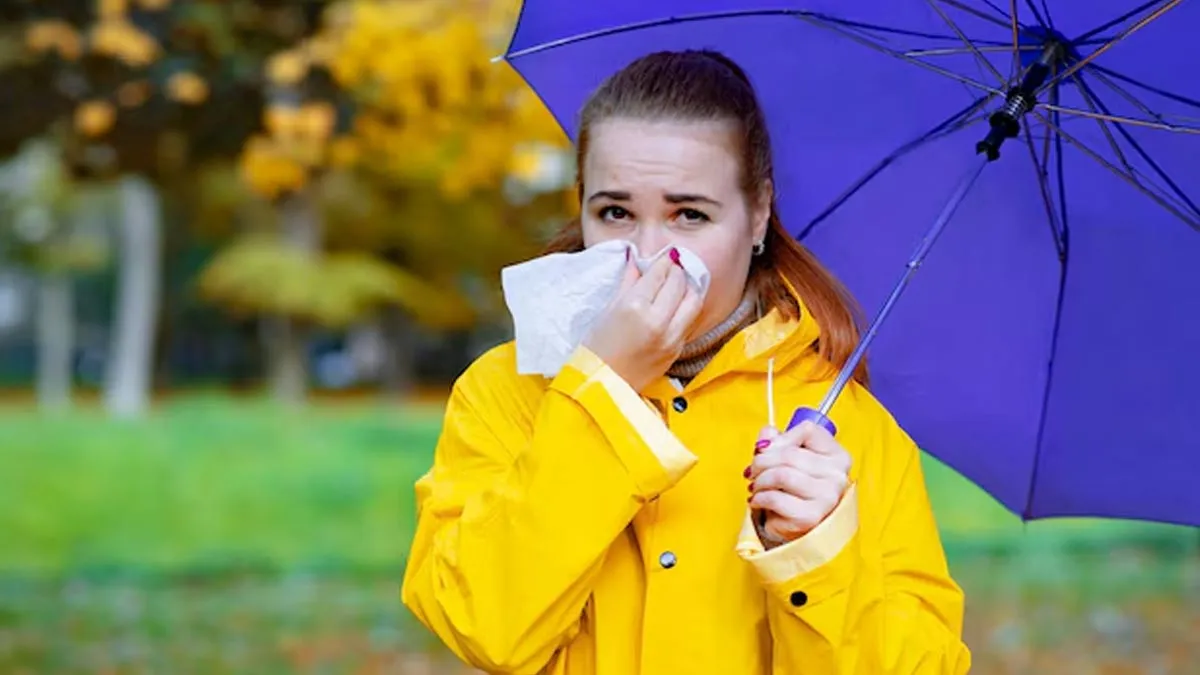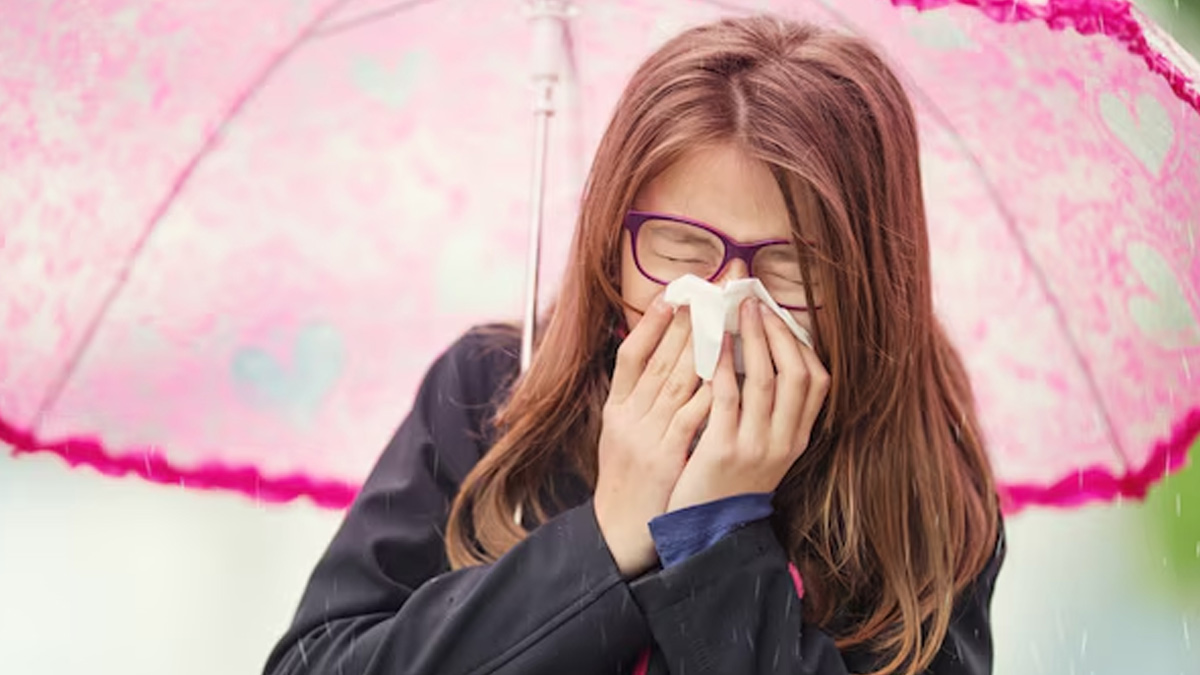
Do you often find yourself sniffling, sneezing, or dealing with a stuffy nose every time it rains? Does the monsoon season seem to make your existing allergies even worse? If you constantly rely on antihistamines or allergy medications to get through the season, you're not alone.
Table of Content:-
In conversation with the OnlyMyHealth team, Dr Neeraj Gupta, Senior Consultant - Paediatrics, Sir Gangaram Hospital, Delhi, explains why allergies become more prevalent during monsoon and natural ways to manage the symptoms without any medications.
Also Read: What Does Skin Poisoning Look Like? Expert Shares How To Stay Safe!
Why Do Allergies Worsen During Monsoon?

As we all know, the monsoon brings with it high humidity, stagnant water, and poor ventilation, all of which encourage the growth of mould, dust mites, and fungi. These are common triggers for allergies.
According to Dr Gupta, damp indoor conditions and increased exposure to airborne allergens can lead to flare-ups of allergic rhinitis, asthma, and skin rashes.
This was also established in a 2013 study published in the Osong Public Health and Research Perspective that looked at how typhoons and heavy rain affect allergies. It found that in the days following a storm, more people visited clinics for allergic rhinitis and skin allergies like atopic dermatitis, likely due to increased mould, pollen, and other allergens in the air.
Common Triggers Of Monsoon Allergy

Some of the common triggers or allergens during the monsoon include:
- Mould spores growing on damp walls, carpets, and bathrooms
- Dust mites thriving in humid bedding and upholstery
- Pollen from post-rain vegetation
- Cockroach allergens and pet dander in poorly ventilated homes
- Insect bites leading to skin allergies or urticaria
How To Manage Monsoon Allergies
According to Dr Gupta, a few simple yet effective measures can help manage monsoon allergies. These include:
- Using a dehumidifier or keeping indoor humidity below 50%
- Sun-drying bedding and clothes to kill dust mites
- Wearing a mask while cleaning, sweeping, or gardening
- Frequent cleaning of damp areas like bathrooms and kitchens
- Saline nasal rinses to clear allergens from nasal passages
How To Reduce Dependence On Antihistamines

If you want to reduce your dependence on medications like antihistamines, the key is to strengthen your immune system and keep your surroundings clean. Some of the measures you can take are:
- Identify and avoid known triggers with help from an allergy specialist.
- Use allergen-proof covers on pillows and mattresses.
- Opt for immunotherapy (allergy shots or tablets) for long-term relief.
- Practise steam inhalation or use air purifiers to reduce allergen load.
- Build a routine of prevention over medication.
Also Read: How To Know If You Have Perfume Allergy
Additionally, your diet and dietary habits play a crucial role as well. Here’s what Dr Gupta recommends:
- Consume anti-inflammatory foods like turmeric, ginger, garlic, and omega-3-rich foods (like flaxseeds, walnuts, and fish) that may support immune balance.
- Adding local honey (unprocessed) to your food and drinks is believed by some to help build tolerance to local pollen, though evidence is limited.
- Staying hydrated and consuming vitamin C-rich fruits can aid respiratory health.
However, note that these are supportive strategies and not substitutes for medical advice.
Conclusion
Managing monsoon allergies doesn't always have to mean taking medication; small lifestyle adjustments, better hygiene practices, and immune-boosting foods can make a noticeable difference. While antihistamines may still be necessary at times, relying on natural, preventive strategies can help reduce their frequent use and offer longer-lasting relief throughout the season.
Also watch this video
How we keep this article up to date:
We work with experts and keep a close eye on the latest in health and wellness. Whenever there is a new research or helpful information, we update our articles with accurate and useful advice.
Current Version